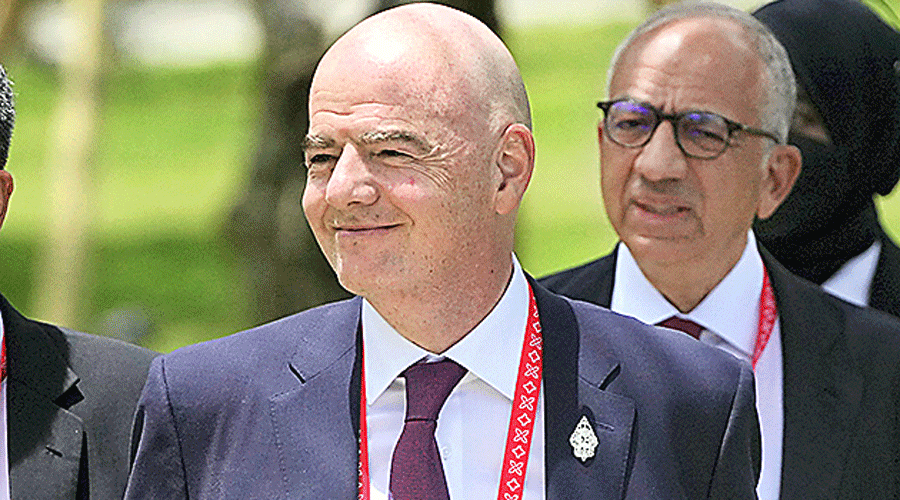Gianni Infantino, a contentious figure in the world of football, on Thursday secured a new term as Fifa president after an election in which he was the only candidate.
Infantino, 52, got the post for another four years by acclamation at Fifa’s 73rd Congress in the Rwandan capital of Kigali. All but a small number of Fifa’s 211 national federations rose to applaud Infantino, making his re-election as head of football’s governing body a formality.
Upon getting the crown, Infantino promised record revenues in the next four-year cycle of $11 billion as he called for more football to be played around the world.
He also appeared to acknowledge that he was not universally popular amid controversies, including the treatment of migrant workers in the run-up to last year’s World Cup in Qatar and a failed plan to play the tournament every two years.
“It is an incredible honour and privilege, and a great responsibility,” Infantino said. “I promise to continue serving Fifa and football around the world.
“To those that love me, and I know there are many, and those who hate me ... I love you all.”
Infantino confirmed Fifa’s income hit record levels in the last cycle from 2019-22, but promised to substantially raise this again on the back of expanded men’s and women’s World Cup tournaments and the introduction of a 32-team Club World Cup.
“Revenues rose to a record $7.5 billion (to 2022) in a period that was hit by Covid-19. When I arrived, Fifa reserves stood at around $1 billion, today they are at almost $4 billion,” Infantino said.
“We promise new record revenues for the next cycle of $11 billion, and the new Club World Cup is not included in that figure, so it could increase by a couple of billion (more).”
Infantino said Fifa would continue to review the transfer system to “improve transparency” and suggested the organisation might discuss a salary cap.
“We must improve our regulations and the Fifa statutes. We will continue to evolve our good governance principles and look at the transfer system, and maybe have a discussion to improve transparency of transfer fees and salaries.
“It might be necessary to introduce a cap, we have to think how we can do that. We will look at it with all stakeholders and see what we can do.”
Written with Reuters inputs










